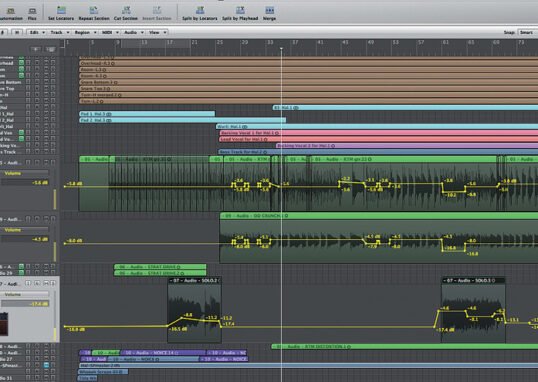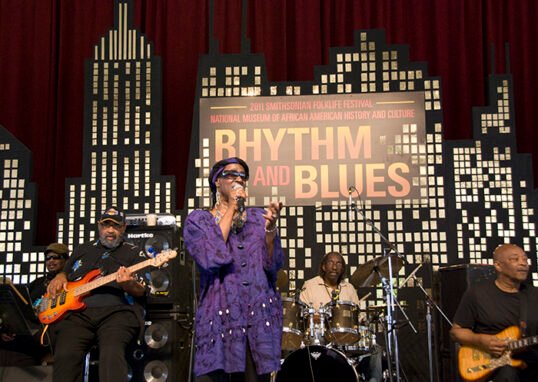
The intersection of technology and rock music has led to significant transformations in how the genre is produced, recorded, and experienced. Over the past few decades, advancements in technology have revolutionized rock music production, enabling artists to experiment with new sounds, streamline their processes, and reach global audiences more effectively. This article delves into the impact of technology on rock music production, highlighting key innovations and their effects on the genre.
The Advent of Digital Recording
Revolutionizing the Studio
One of the most significant technological advancements in rock music production is the shift from analog to digital recording. Traditional analog recording involved using magnetic tape, which was often cumbersome and limited in terms of editing and mixing. The introduction of digital recording technology, however, revolutionized the process. Digital audio workstations (DAWs) like Pro Tools, Logic Pro, and Ableton Live allow for precise editing, unlimited tracks, and an array of virtual instruments and effects. This has enabled rock musicians to experiment with their sound more freely and produce high-quality recordings without the constraints of analog tape.
The Rise of Music Production Software
Expanding Creative Possibilities
Music production software has played a crucial role in shaping modern rock music. With the advent of virtual instruments, synthesizers, and plug-ins, musicians have access to an extensive range of sounds and effects that were previously unavailable. Software such as Native Instruments’ Kontakt, Spectrasonics’ Omnisphere, and Waves’ plugin suite offer endless possibilities for sound design and mixing. This has led to a fusion of rock with electronic elements, resulting in new subgenres and innovative tracks that push the boundaries of traditional rock music.
The Influence of Home Recording Studios
Accessibility and Innovation

The development of affordable recording technology has made it possible for rock musicians to create professional-quality music from the comfort of their homes. Home recording studios equipped with digital audio interfaces, high-quality microphones, and monitoring systems have democratized music production. Artists like Dave Grohl and Trent Reznor have used home studios to produce critically acclaimed albums, showcasing how technology enables creativity and innovation outside of traditional studio environments. This shift has allowed for a more diverse range of sounds and styles within the rock genre.
The Role of Social Media and Streaming Platforms
Connecting with Audiences
Technology has not only changed how rock music is produced but also how it is distributed and consumed. Social media platforms like YouTube, Instagram, and TikTok have become vital tools for artists to share their music and connect with fans. Streaming services such as Spotify and Apple Music provide rock bands with global reach, allowing them to distribute their music to a wider audience than ever before. These platforms also offer valuable analytics that can help artists understand their listeners and tailor their marketing strategies accordingly.
The Integration of Artificial Intelligence
Enhancing Production Techniques
Artificial intelligence (AI) is beginning to make its mark on rock music production. AI-powered tools are being used for tasks such as automatic mixing, mastering, and even songwriting. For instance, platforms like Amper Music and AIVA use AI to generate music and assist in the composition process. These technologies can analyze vast amounts of data to create music that aligns with certain styles or preferences. While AI is still in its early stages in rock music, its potential to streamline production and introduce new creative possibilities is significant.
The Evolution of Live Sound Technology
Enhancing Performance Experiences
In addition to studio production, technology has transformed live rock performances. Advanced sound systems, digital mixing consoles, and in-ear monitoring systems have improved the quality of live sound and allowed for more precise control over audio during performances. Innovations like 3D audio and immersive sound experiences are also becoming more common, offering audiences a more engaging and dynamic concert experience. Technology has enabled rock bands to deliver more polished and impactful live shows, further enhancing the genre’s appeal.
Conclusion
The impact of technology on rock music production is profound and far-reaching. From digital recording and music production software to home studios and streaming platforms, technological advancements have reshaped how rock music is created, distributed, and experienced. As technology continues to evolve, it will undoubtedly bring new innovations and opportunities to the genre, allowing rock music to adapt and thrive in an ever-changing landscape. The fusion of technology and creativity remains a driving force behind the evolution of rock music, ensuring that the genre remains vibrant and relevant for future generations.






